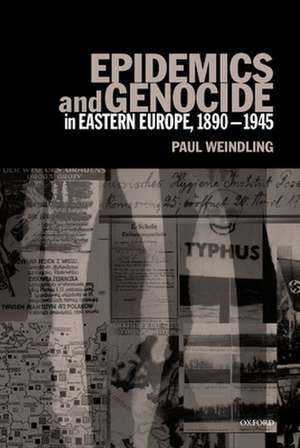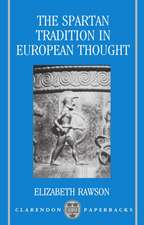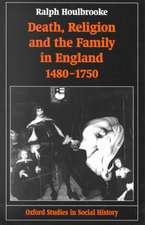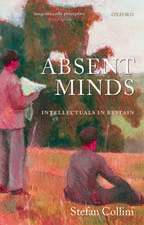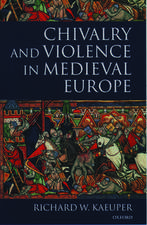Epidemics and Genocide in Eastern Europe, 1890-1945
Autor Paul Weindlingen Limba Engleză Hardback – 2 feb 2000
Preț: 1118.09 lei
Preț vechi: 1693.58 lei
-34% Nou
Puncte Express: 1677
Preț estimativ în valută:
214.00€ • 222.57$ • 179.33£
214.00€ • 222.57$ • 179.33£
Carte tipărită la comandă
Livrare economică 03-08 martie
Preluare comenzi: 021 569.72.76
Specificații
ISBN-13: 9780198206910
ISBN-10: 0198206917
Pagini: 486
Ilustrații: 22 halftones, 3 maps
Dimensiuni: 164 x 242 x 31 mm
Greutate: 0.98 kg
Editura: OUP OXFORD
Colecția OUP Oxford
Locul publicării:Oxford, United Kingdom
ISBN-10: 0198206917
Pagini: 486
Ilustrații: 22 halftones, 3 maps
Dimensiuni: 164 x 242 x 31 mm
Greutate: 0.98 kg
Editura: OUP OXFORD
Colecția OUP Oxford
Locul publicării:Oxford, United Kingdom
Recenzii
Weindling has clearly put his finger on something important here.
Paul Weindling's Epidemics and Genocide in Eastern Europe, 1890-1945 is a chilling book.
This volume is powerful and perceptive, informative and insightful, providing visual evidence and explanatory diagrams which give a very comprehensive aspect to the book ... anyone with even the remotest interest in modern history would find this volume intriguing.
Dense and academic but at the same time stimulating ... a compelling work.
Paul Weindling's Epidemics and Genocide in Eastern Europe, 1890-1945 is a chilling book.
This volume is powerful and perceptive, informative and insightful, providing visual evidence and explanatory diagrams which give a very comprehensive aspect to the book ... anyone with even the remotest interest in modern history would find this volume intriguing.
Dense and academic but at the same time stimulating ... a compelling work.
